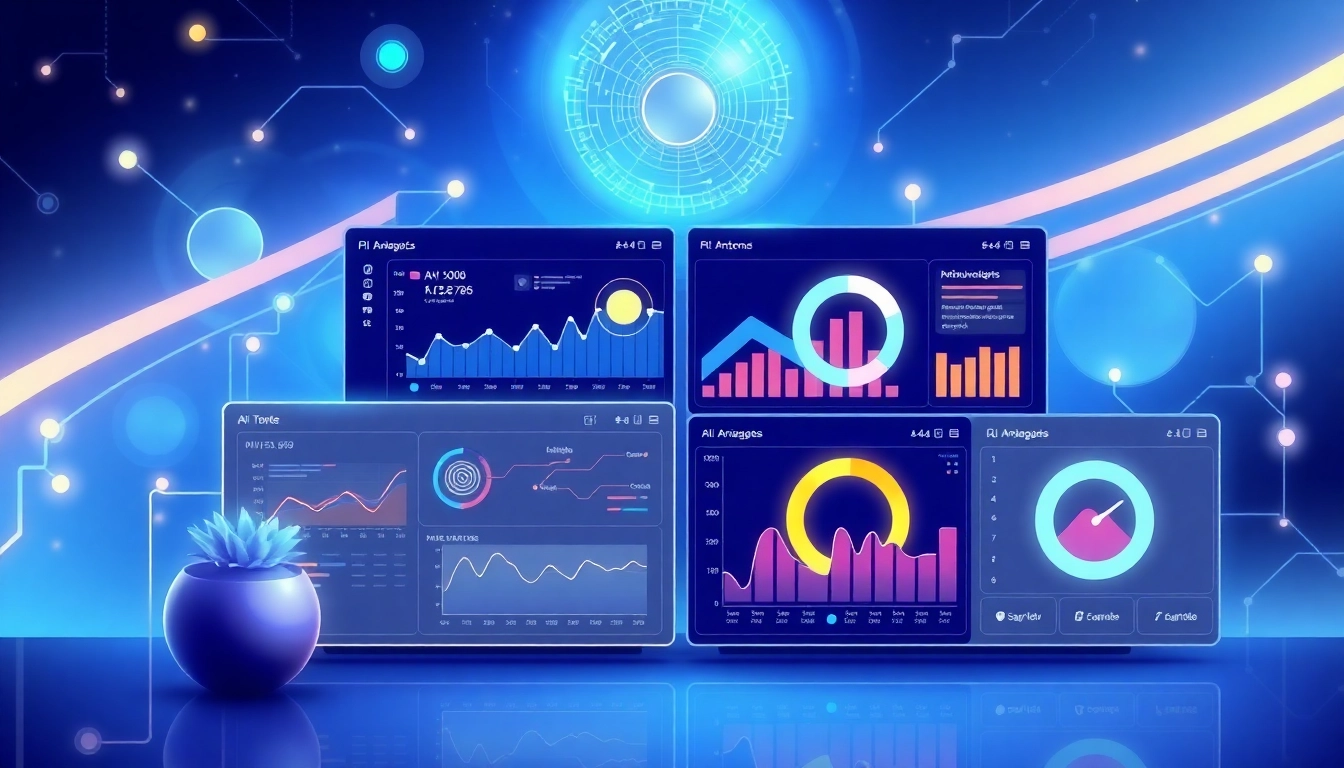Introduction to AI Marketing Tools
In the rapidly evolving digital landscape, businesses are increasingly leveraging AI marketing tools to optimize their marketing strategies. These tools harness artificial intelligence to automate tasks, analyze data, and create personalized customer experiences, enabling marketers to focus on core business strategies. As companies strive to stay competitive, understanding the role of AI in marketing is paramount to achieving growth and efficiency.
Understanding AI in Marketing
Artificial Intelligence (AI) has transformed how businesses approach marketing by automating processes that were once manual and time-consuming. From targeted advertisements to customer interactions, AI applications in marketing significantly enhance efficiency and effectiveness. AI technologies utilize machine learning, natural language processing, and predictive analytics to enable marketers to derive actionable insights from vast amounts of data.
The Evolution of Marketing Automation
Starting as a way to streamline email marketing, automation options have evolved into comprehensive AI-powered platforms that help businesses execute multi-channel campaigns, optimize customer journeys, and deliver personalized content. The advent of AI has made marketing automation not just about efficiency but achieving strategic goals through data-driven decision-making. This evolution encompasses advanced analytics, real-time behavior tracking, and the ability to hyper-personalize marketing communications.
Why Businesses Need AI Marketing Tools
As consumer behavior shifts towards digital experiences, businesses must adapt to retain relevance. AI marketing tools empower companies to:
- Analyze Customer Data: Extract insights from vast data sets to understand customer behaviors and preferences.
- Enhance Personalization: Deliver tailored messages and product recommendations, improving customer engagement.
- Optimize Ad Spend: Use predictive analytics to identify the most effective campaigns and allocate budgets accordingly.
- Streamline Workflows: Automate repetitive tasks, allowing teams to focus on strategic initiatives.
Top AI Marketing Tools to Consider
Tools for Content Creation and Management
Content remains a cornerstone of digital marketing, and AI tools can significantly enhance content creation and management. For instance, tools like Jasper leverage AI to aid in generating high-quality written content tailored to specific audiences. This not only speeds up the content creation process but also ensures that the content aligns with SEO best practices.
Another notable tool is Surfer SEO, which combines content optimization with data-driven strategies to improve search engine rankings. By analyzing top-performing content, it provides recommendations on keywords and structure to help marketers produce better content.
Best AI Tools for Data Analytics
Utilizing AI for data analytics can transform how businesses understand their customers. Solutions like Google Analytics 4 now incorporate machine learning to provide predictive insights and customer lifecycle tracking. This enables marketers to anticipate customer needs and adapt their strategies accordingly.
Tableau and Power BI are also AI-driven data visualization tools that help companies create interactive dashboards to make sense of complex data. These platforms facilitate easier interpretation of data analytics, empowering organizations to make informed decisions quickly.
Innovative Solutions for Customer Engagement
AI chatbots, such as those powered by HubSpot and Drift, represent a revolutionary way to engage with customers in real-time. These tools utilize natural language processing to conduct human-like conversations, providing instant support and improving overall customer satisfaction.
Implementing AI Marketing Tools Effectively
Assessing Your Business Needs
Before integrating AI marketing tools, businesses should assess their objectives and identify specific pain points that AI can address. This involves thorough market research, understanding the customer journey, and mapping out marketing processes that could benefit from automation.
Integrating AI Tools into Existing Workflows
Integrating new AI tools into established workflows requires careful planning. This could mean gradually introducing tools while ensuring that existing technology stacks are compatible. Training sessions for staff on the new tools and software will foster smoother transitions and maximize tool effectiveness.
Measuring Success: Key Performance Indicators
To gauge the effectiveness of AI marketing tools, businesses should establish clear KPIs. Metrics like customer engagement rates, conversion rates, and ROI from campaigns can provide insights into the tools’ performance. Regularly analyzing these metrics enables marketers to refine strategies and optimize outcomes further.
Challenges and Solutions in AI Marketing
Common Pitfalls to Avoid
While adopting AI can offer significant advantages, companies must be aware of potential pitfalls. These include relying too heavily on automation without human oversight, which can lead to disengagement. Additionally, data privacy concerns can create barriers to AI adoption if businesses do not adhere to regulations such as GDPR or CCPA.
Overcoming Resistance to AI Technology
Resistance can stem from a lack of understanding about AI’s capabilities and benefits. To combat this, education is essential. Providing case studies and examples of successful AI implementations can help garner support across teams and drive a culture of innovation.
Best Practices for Team Training
Effective training programs focus on not just how to use AI tools, but also on how to interpret the insights generated and apply them to marketing strategies. Continuous learning opportunities, workshops, and access to resources can keep teams updated on the best practices and latest trends in AI marketing.
The Future of AI in Marketing
Predictions for AI Marketing Trends
As AI technology advances, several trends are emerging. These include hyper-personalization driven by advanced algorithms, the rise of voice search impacting content strategies, and enhanced customer service through AI chatbots. Organizations that can adapt to these changes will likely experience more robust engagement and loyalty.
Preparing for Continuous Change
Staying abreast of technological advancements in AI will enable businesses to remain competitive. This involves investing in training and development, attending industry conferences, and participating in webinars that highlight new tools and strategies.
Investing in the Right AI Marketing Solutions
Choosing the right AI marketing tools can significantly influence a business’s success. A thorough analysis of features, ease of integration, and vendor support is necessary. Enterprises should aim for tools that are not only powerful but align with their specific marketing objectives and enhance team collaboration.



